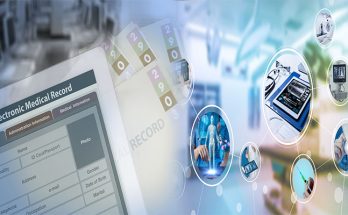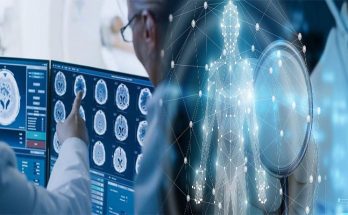Personalized medicine, also known as precision medicine, is transforming the healthcare industry by tailoring medical treatments to meet the unique characteristics of individual patients. One of the key technologies driving this revolution is machine learning. In this article, we will explore the exciting applications of machine learning in personalized medicine and the impact it has on patient care.
Understanding Machine Learning in Personalized Medicine
Machine learning involves the use of algorithms and statistical models that enable computers to learn from and analyze large volumes of data to make accurate predictions or decisions. When applied to personalized medicine, machine learning algorithms can process complex medical data, such as genomic data, electronic health records, and patient lifestyle information, to develop insights and recommendations specific to each patient.
Applications of Machine Learning in Personalized Medicine
- Risk Prediction and Diagnosis: Machine learning algorithms can analyze vast amounts of patient data to identify patterns and predict the risk of developing specific diseases or conditions. By recognizing subtle correlations, machine learning models can help healthcare providers make early and accurate diagnoses, allowing for proactive interventions and personalized treatment plans.
- Treatment Selection and Optimization: Determining the most effective treatment for an individual patient can be a challenging task. Machine learning algorithms can analyze patient data in real-time, including genetic profiles, medical history, and treatment outcomes, to recommend the most suitable treatment options. By leveraging machine learning, healthcare providers can optimize treatment plans and minimize trial-and-error approaches, resulting in improved patient outcomes.
- Drug Discovery and Development: Traditional drug discovery and development processes can be time-consuming and costly. Machine learning algorithms can accelerate these processes by analyzing large datasets and identifying potential drug candidates or predicting drug-target interactions. By streamlining drug discovery, personalized medicine can offer targeted therapies tailored to individual patient needs.
- Predictive Analytics and Monitoring: Machine learning algorithms can extract valuable insights from continuous monitoring of patient data, such as vital signs, medication adherence, and lifestyle factors. These algorithms can detect patterns, detect early warning signs, and predict disease progression. By identifying patients at risk of complications, healthcare providers can intervene proactively and provide personalized treatment plans to prevent adverse outcomes.
- Genomic Medicine: Machine learning plays a significant role in genomic medicine, analyzing genetic data to identify disease risk factors and personalize treatment plans. Genetic sequencing produces vast amounts of data that can be challenging to interpret without computational tools. Machine learning algorithms can analyze genomic data and identify genetic patterns associated with diseases, helping healthcare providers make more informed decisions about patient care.
Benefits and Challenges of Machine Learning in Personalized Medicine
The applications of machine learning in personalized medicine offer several benefits, including:
- Improved diagnosis accuracy and personalized treatment selection
- Reduced healthcare costs through optimized treatment plans
- Enhanced patient outcomes and quality of life
- Faster drug discovery and development processes
However, it is important to address the challenges associated with machine learning in personalized medicine, such as ensuring data privacy, maintaining data quality, and integrating machine learning algorithms into existing healthcare systems.
The Future of Personalized Medicine and Machine Learning
Machine learning holds immense potential in revolutionizing personalized medicine. As technology advances, we can expect further development in areas such as real-time monitoring, predictive analytics, and more precise treatment selection. The integration of machine learning with other technologies, such as wearable devices and mobile applications, will enable patients to actively participate in their healthcare journeys.
Machine learning is transforming personalized medicine by harnessing the power of data to provide tailored treatments and improved patient outcomes. As we continue to unlock the potential of machine learning algorithms, personalized medicine will revolutionize healthcare by delivering precise, patient-centric care.





